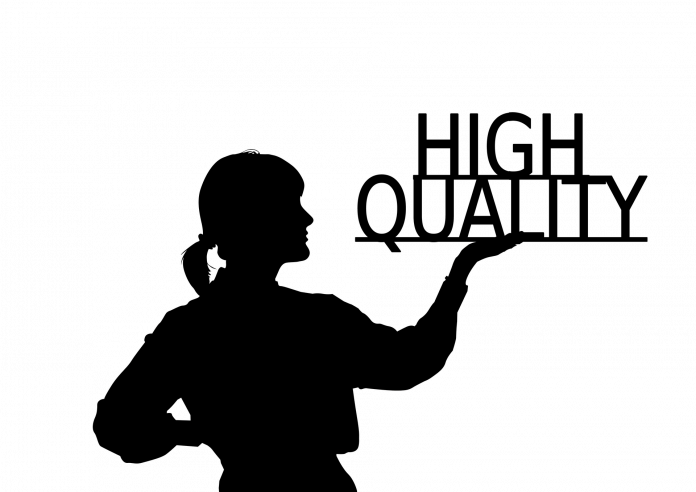Pity the Russian influencers. The war in Ukraine and sanctions have hit them hard and many are struggling to woo their audiences to Russian platforms.
Most bloggers have lost followers and their revenue from advertising has been decimated after the Kremlin blocked Instagram and Facebook, forcing many to migrate to domestic platforms, Kommersant reported this week.
Audience
Opinion leaders have lost out massively _ up to 70% of their audience and up to 80% of their revenue, insiders say.
Even with a presence on domestic platforms such as Telegram earnings have shrunk and audiences aren’t buying the move. Experts believe things will eventually revert in their favor, but it will take time.
<< The outbreak of hostilities in Ukraine has led to the interruption of free access to international digital platforms and social networks from Russia. In March, Facebook and Instagram were banned and blocked in the Russian Federation (Meta activities were declared extremist and banned), and Twitter was blocked, Kommersant wrote.
The platforms themselves set restrictions: YouTube suspended all monetization in Russia, after previously halting ads, and blocked access to Kremlin-backed media channels worldwide. Meta’s social networks blocked advertisers’ accounts, and TikTok limited the downloading new videos and access to foreign content.
All this contributed to the migration of Russians who were making money on these platforms to other social media, including domestic ones.
Meta
After the Meta lockdown, Russian social networks spoke about audience growth. A representative of VKontakte told Kommersant that in March the daily number of users in the Russian Federation increased by 9% and exceeded 50 million people for the first time, while the monthly audience reached 72 million people (and worldwide it passed 100 million). On April 12, social media platform Odnoklassniki reported a 66% increase in new accounts since the beginning of March, and the reactivation of 36% of old accounts. Gazprom-Media, which owns the Yappy video service, claims that the volume of the monthly active audience in March increased by 56% compared to February, and the average daily audience was up by 68%.
Russian platforms
The transition of Facebook and Instagram audiences to Russian platforms has been greatly facilitated not only by the blocking, but also by the lack of clarity of the consequences for users. …. The Moscow branch of the Russian Lawyers’ Association (AJR) asked for clarification from the Prosecutor General’s Office. Lawyers want to clarify whether individuals and legal entities can be held administratively and criminally liable for posting links to Meta resources, „likes”, using symbols of the platform, as well as the messaging tools embedded in them. There is still no information yet on the general prosecutor’s office’s response, according to AJR.
Mediascope notes that Telegram is the fastest growing platform: the number of Russians over 12 visiting the site every day increased by 25% ( for 21-27 February) and 34 % (11–15 April). The platform accounts for a significant part of the consumption of news content, according to Mediascope. VKontakte’s uptake hasn’t visibly changed – from 38% to 41%, while the situation at Odnoklassniki hasn’t changed at all. Instagram’s average coverage dropped from 32% to 12%, Facebook’s from 8% to 2%, and TikTok’s coverage from 28% to 26%.
After Instagram was blocked, only 10–20% of the bloggers’ followers went with them to other platforms, says Kirill Borisov, the CEO of LabelUp. Epicstars communications director Anastasia Ermoshina believes popular bloggers with an audience of over a million subscribers won’t be able to transfer quickly to new platforms. When switching from Instagram to other social networks, bloggers can lose 15-20% of the „old” audience and up to 50-70% overall, taking into account artificial elements, argues the director of Marketing Brand Analytics, Vasily Cerni. He explains that there may be a significant share of readers who deliberately do not subscribe to the author on new platforms, for example simply realizing that it has become uninteresting to watch.
Many users remain on blocked social media channels by using a VPN. But Mediascope says people are spending less time on social media. „The proportion of users who spend less than five minutes has increased.”
Translation difficulties
As a result, neither bloggers nor advertisers „can immediately adapt to all the changes and are not in a hurry to leave the usual platforms,” points out Ekaterina Bibik, the head of Admitad Affiliate in Russia. Nor are the Russian platforms themselves yet ready to accept bloggers from Facebook or Instagram.
According to Anastasia Ermosina, one of the reasons is a significant difference between the audience of international and domestic social networks. Kirill Lubnin, CROS’s vice president for strategy and development, notes that users of VKontakte and Odnoklassniki are less interested in politics and current affairs than those on Facebook and Instagram who bypass their blocking. There is a lot of consumer and entertainment content on VK social networks, as well as „content with regional or territorial reference”, he noted. Russian social networks focus less on audiences in Moscow and St. Petersburg than Instagram LabelUp says.
The differences in user preferences are largely related to how the platforms positioned themselves in the early stages of development, explains Kirill Borisov: „Visual content has a greater response on Instagram than on other sites because the philosophy of sharing photos is still alive.”
Telegram
There are also problems with the transition to Telegram, which was originally conceived by the founder of VKontakte, Pavel Durov, as a messaging app. With the advent on the platform of „groups” and „channels”, messaging has become closer to a social network. … Bloggers who don’t adapt to the changes run the risk that their followers will turn off notifications and therefore losing their audience reach.
Telegram focuses more on high-quality text content. Some bloggers who have moved from Instagram to Telegram have tried to replace Instagram stories with video messages displayed in the form of circles in Telegram, but „the platform is not designed for this type of content”, remarked Mr. Lubnin. Telegram is more suited for text than for posting photos and videos.
‘In the long run, it won’t work out’
For bloggers, the loss of audience inevitably translates into a loss of revenue. IAB Russia estimated the influencer marketing market was worth 11.1 billion rubles at the end of 2020. In 2021, according to expert estimates, it rose to 13-15 billion rubles. The market was built on the basis of brand budgets allocated to bloggers on Instagram, notes Mr. Borisov.
Bloggers on Instagram have lost estimated at 80-100% of their revenue, while the the influencer marketing market is losing 280 million rubles per week, said Mr. Borisov: „This is related not so much to the blockage, but to the suspension of advertising. In April, some small brands resumed working with bloggers, but that’s a small fraction of the total.” Mrs. Ermosina estimates that the income of bloggers has decreased between 30-80%.
Bloggers who are new to Russian social media try to adapt as quickly as possible, because „they start from the fact that it is necessary to quickly seize the territory” and recover losses, said Mr. Cerni. However, in his view, the process „can take two to three months.” Epicstars generally considers attempts to urgently replace some social networks with others doomed to fail. According to Mrs. Ermosina, influencers „may try to achieve something, but in the long run it will not work.”
Bloggers
The switch to Telegram will not be able to compensate for the decrease in bloggers’ income from blocking Instagram, especially in the short term, Nikita Pribylovski, executive director of SA Media Group believes. However, the relatively small audience of bloggers on Telegram ” should not alienate advertisers”, he believes, since influencers are followed by the most loyal and publicly involved, on the new platforms: „The decrease in the efficiency of advertising is much less than the decrease in job coverage.” Advertisers and bloggers need to create new mechanisms to maintain their effective advertising strategies. It may be helpful, according to Kirill Borisov, the „approval” of a particular site by the main large advertisers, as well as the expansion of monetization programs from the sites in itself.
Migration
According to Ms Bibik, those who turned to VKontakte and Telegram have been in the most advantageous position. The volume of commercial clicks on links in their publications, says the expert, has decreased by only a few percent, and with the restoration of purchasing power, „they are the ones who they will be able to take all the cream.” The great migration of bloggers can be divided into three categories, considers Mr. Pribylovski. The former can adapt their content to new platforms and recover previous earnings, the latter will earn more … through TV projects and others will resign themselves to a decrease in revenue. The expert is sure that by the end of 2022, the third group will be the largest >>.




















